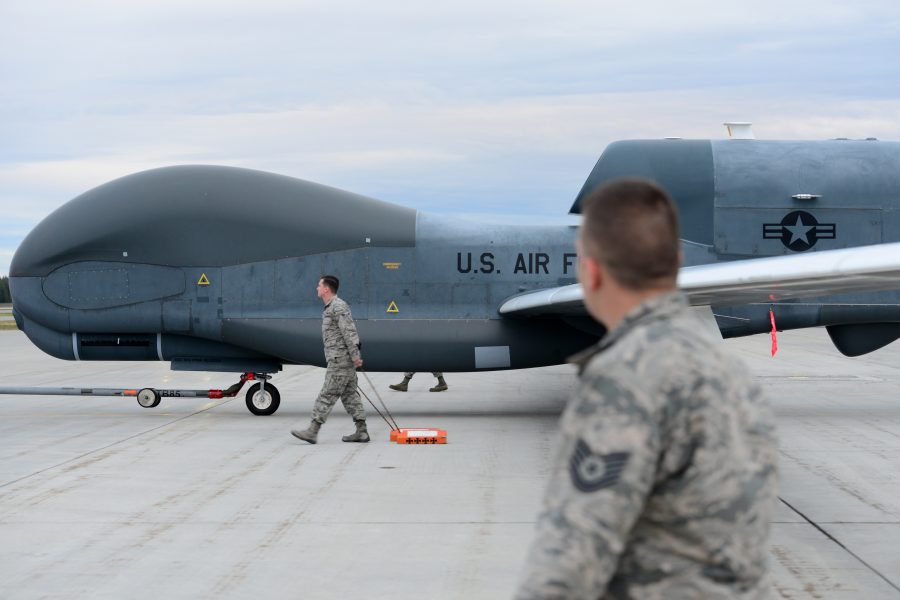The Air Force’s annual retention bonus program is shrinking to about 70 career fields in fiscal 2020, while aiming to keep more types of aircraft maintainers and cybersecurity specialists in the service, according to a Nov. 20 release.
The Selective Retention Bonus effort offers a piece of more than $150 million to airmen who reenlist in 72 specialties that are struggling with a high pace of operations, low manning, and retention concerns, down from 115 specialties last year. Typically, it focuses on careers in intelligence, surveillance, and reconnaissance, remotely piloted aircraft, nuclear missions, maintenance, space, cyberspace, and other operations.
Cyber surety experts and maintainers that handle the RQ-4 Global Hawk, the C-17 Integrated Instrument and Flight Control System, and communications, navigation, and mission systems on the E-4 and VC-25 were added to the 2020 list of people who can see a financial boost if they stay in the service.
Airmen can earn bonuses of up to $100,000. This year’s program goes into effect Nov. 21.
“Based on past efforts and the growth we’ve enjoyed the last few years, our manning levels are better than we’ve been in a while,” Air Force personnel boss Lt. Gen. Brian Kelly said in a release. “Even so, we still have shortages and will continue to strategically use the Selective Retention Bonus program for those [Air Force Specialty Codes] that are most in need.”
The Air Force is trying to ensure it has enough experienced maintainers to teach younger ones their skills, in order to avoid backsliding into a new shortage of sustainment professionals. It is also building out its cyber corps and creating new positions to address a growing variety of skills needed to protect networks and software as well as for offensive missions.
About 40 career fields have been removed from the program as the health of their enterprises improved. The service offered bonuses to 117 specialties at the peak as the Air Force tried to grow.
“While not every career field gets a bonus, this is the right move to set our team up for success in the future,” Chief Master Sergeant of the Air Force Kaleth Wright said.
